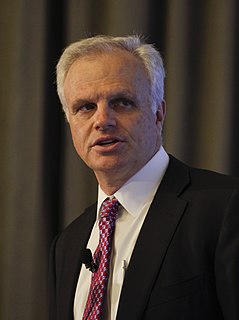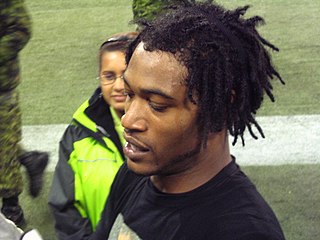A Quote by Stephen Covey
Above all, success in business requires two things: a winning competitive strategy, and superb organizational execution. Distrust is the enemy of both. I submit that while high trust won't necessarily rescue a poor strategy, low trust will almost always derail a good one.
Related Quotes
When trust is high, the dividend you receive is like a performance multiplier, elevating and improving every dimension of your organization and your life.... In a company, high trust materially improves communication, collaboration, execution, innovation, strategy, engagement, partnering, and relationships with all stakeholders.
Teams use trust as currency. If it is in short supply, then the team is poor. If trust abounds, the members of the team have purchase power with each other to access each others’ gifts, talents, energy, creativity, and love. The development of trust then becomes a significant leadership strategy. Trust creates the load limits on the relationship bridges among team members
I still believe that for good business analysts a concentrated portfolio is a good strategy combined with a long term horizon. Once again, the secret to success in following the formula strategy is patience, a quality in short supply for both professionals and individual investors alike. I think investors should have a large portion of their assets in equities over time.
What we're trying to do in conversational intelligence is not only define that trust continuum for people, not only helping them notice, which is so important, what's happening in them and others when distrust lives, but also how to bring people in trust. When they do, what happens, this part of our brain, the prefrontal cortex is loaded with wisdom, integrity, strategy, insights, empathy, foresight. It's beautiful. It's so designed for that, and often it's turned off because people don't have trust with each other.
A good strategy is not always successful, but even an "inappropriate" strategy may be an actual strategy. A "bad strategy" is one that doesn't even try to address an important challenge. Instead, it speaks of aspirations, visions of the future, lays out performance goals, or simply lists a bunch of unconnected actions.
You can't have success without trust. The word trust embodies almost everything you can strive for that will help you to succeed. You tell me any human relationship that works without trust, whether it is a marriage or a friendship or a social interaction; in the long run, the same thing is true about business, especially businesses that deal with people.
When the trust is high, you get the trust dividend. Investors invest in brands people trust. Consumers buy more from companies they trust, they spend more with companies they trust, they recommend companies they trust, and they give companies they trust the benefit of the doubt when things go wrong.
































